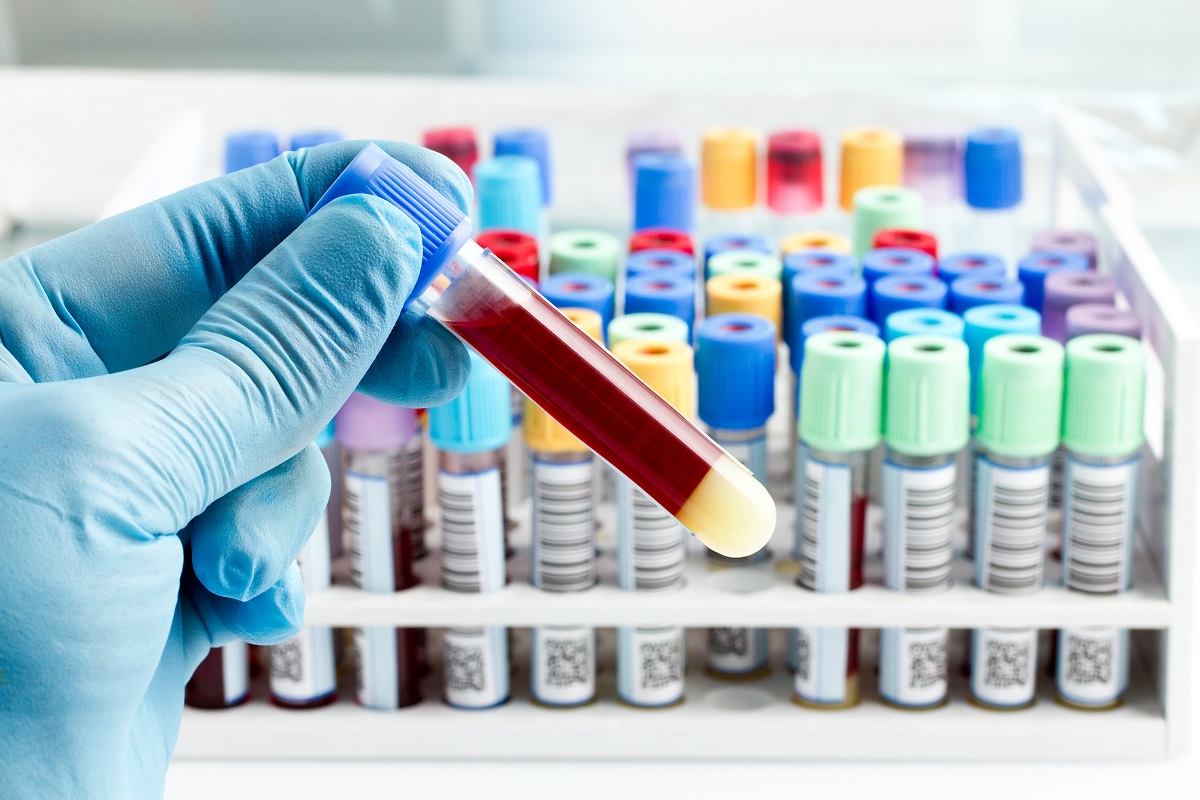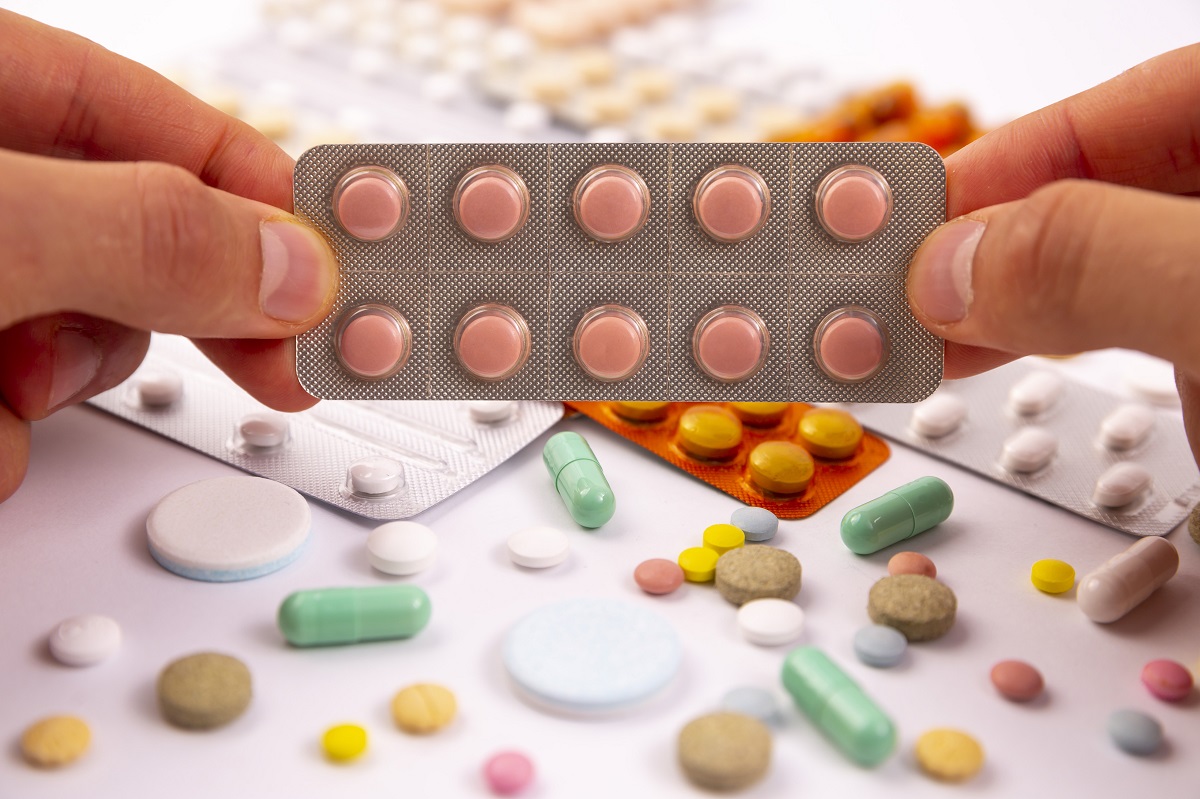
Whether it’s an over-the-counter medication or prescription drug, generally, every medicinal product has to go through various research stages and clinical testing before it is approved to be sold.
Yet, despite the fact that the U.S. Food and Drug Administration (FDA) plays a major role in this process, there are many instances where approved drugs end up being just as harmful to a patient as the condition they are trying to treat. If the pharmaceutical company that develops and designs a drug fails to give adequate warnings about any potential risks of using their product, you may be able to seek legal action against them.
For instance, Taxotere, a chemotherapy drug used primarily to treat breast cancer, has had some unexpected effects on patients. One of the major issues is permanent and irreversible tearing caused by the product.
The Texas Taxotere lawsuit attorneys of Hotze Runkle PLLC are here to give you a brief overview of exactly how the drug development process works, as well as information on factors that lead to defective drug product cases.
About the Medicine Testing Process
-
Discovery and Developmental Phase
Before a new drug is developed, market research is done first to ensure there is a need for it. This process usually includes a scientific investigation into the condition, as well as how it functions and spreads within the body. Once this portion is complete, the researchers will investigate exactly what tools (chemicals, compounds, etc.) might act on the specific disease.
-
Pre-Clinical Trials
During this phase, the research team will look for chemical compounds that will best treat the condition in a safe and effective manner. This includes determining the toxicity levels of the compounds and obtaining as much data as possible via multiple experiments.
-
The Clinical Trial Process
In order to properly test these drugs out, a protocol is created to organize the overall objectives, questions, and answers researchers are attempting to obtain. Some of the notable factors that must be decided upon before testing include:
- Who is eligible to participate in the study.
- The number of people who will be involved in the study.
- The time length of the research.
- If there would be a separate control group that will participate.
- How large of a dosage will be given to the participants.
Before officially starting the testing process, the developers must submit what is known as an Investigational New Drug (IND) application to the FDA. This application will give them the initial information of the product with all the details that must be secured.
The Phases of a Clinical Trial
If cleared to proceed with clinical testing, then 4 separate phases take place over extended periods of time.
- Phase 1: Involves a study with generally less than 100 people and is tested on either healthy volunteers or people living with a specific condition. This phase can last up to several months and it is meant to find out what the proper dosage for consumption will be. About 70 percent of drugs pass on to the next phase.
- Phase 2: This phase expands on the group size and only focuses on individuals who have a specific pre-existing condition or disease. This phase can last anywhere from several months to 2 years and is meant to determine the drug’s efficiency, as well as side effects. Only about 33 percent of drugs proceed to the next phase.
- Phase 3: This phase reaches an even larger group of volunteers who have a pre-existing condition or disease and can last anywhere from 1 to 4 years. The purpose of this phase is to not only continue evaluating the efficiency of the drugs but also monitor any long-term adverse reactions. Only about 25-30% of these drugs move to the final phase.
- Phase 4: The final phase involves several thousand volunteers who currently have the disease, and continues to monitor its safety and overall efficiency.
FDA Drug Approval
Once all the phases have been completed and it is proven that the given drug is safe to use and effective, the pharmaceutical developer can file a New Drug Application (NDA) with the FDA. The NDA reflects the overall research conducted on the drug and includes heavy detail, including clinical trial results, directions for use, safety information, side effects and abuse potential.
Once submitted, it can take 6 to 10 months for the FDA to make a final decision on whether or not the drug is safe to be sold. If there are any issues with the product, they must be resolved between the developer and the FDA. If any modifications are needed, the developer must file another application with the FDA.
The FDA will also overview the product’s labeling and marketing to make sure it complies with federal regulations. New drugs are generally protected from replications (i.e. generic versions) until their patent expiration date.
Defective Drug Claims
There are far too many cases in which developers are dishonest during the approval process. They may hide information from the FDA, provide false data, or even attempt to circumvent the process entirely through illegitimate means.
When it comes to holding pharmaceutical companies liable, there are generally three ways by which they can be found responsible:
- Improper labeling: Also known as failure-to-warn, essentially states that the developers did not properly label their drug as far as instructions, dosage, or listing risk factors when in use.
- Drug design defects: This refers to the initial design of a drug; failure to account for the entire makeup of the drug can lead to dangerous side effects that can lead to severe damages.
- Manufacturing defects: When a given drug is designed correctly but manufactured with defects, then a pharmaceutical manufacturer can be held responsible. This usually includes the drugs having tainted chemicals not originally included in the design.
Hotze Runkle PLLC, the Texas Taxotere Injury Lawyers You Can Depend On
If you or a loved one has suffered permanent tearing due to the defective chemotherapy drug Taxotere, do not hesitate to contact the Texas defective drug attorneys of Hotze Runkle PLLC.
Contact Hotze Runkle PLLC today at (877) 919-0830 for a FREE, no-obligation case review!

Pharmaceutical companies and manufacturers can be held liable for injuries caused by the defective drugs they knowingly put out on the market. Unfortunately, there are limitations when it comes to holding drug manufacturers liable.
Regardless, if you have suffered an injury as the result of a defective drug, you do have options. If you or a loved one have been the victim of excessive tearing (epiphora) as a result of being treated with the chemotherapy drug Taxotere, it’s time to fight back. Today, the relentless Texas Taxotere lawsuit attorneys of Hotze Runkle PLLC will go in-depth as to how drug companies avoid liability and how having the right representation can help.
The FDA and Its Duty to Warn Consumers
Drug manufacturers are required by the U.S. Food and Drug Administration (FDA) to properly test drugs for approval and sale. Once a drug manufacturer has received approval for public usage, it is the responsibility of the maker of the drug to warn consumers of all the potential dangers that may come with use.
While the approval process is meant to safeguard consumers, drug companies use the FDA’s approval for manufacturing and sale as a way to avoid liability for claims like defective design.
Though a drug manufacturer cannot be held accountable for unforeseeable dangers of their product, their duty to warn still persists with the release of the drug, meaning companies have to acknowledge side effects as they become recognized over time.
Unavoidably Risky Products
Some drugs are deemed as unavoidably unsafe products. This essentially means that they aren’t able to be developed entirely safe despite how meticulously they are manufactured.
Certain drugs can have life-changing side effects, but can still benefit the user anyway. If particular drugs go through the proper preparation while including sufficient warnings, the manufacturers and companies oftentimes use this concept to limit their liability in a defective drug/product claim.
Learned Intermediary
If a drug label neglects to provide details and crucial information about said product, an injured individual may be able to file a claim for failure to warn. However, if the label does, in fact, list every risk, the drug company can usually take advantage of a form of defense referred to as the learned intermediary doctrine.
This basically indicates that a manufacturer cannot be held liable for a high-risk drug if the potential side effects were mentioned on the label and made available to the patient’s doctor (the learned intermediary).
To put it into simpler terms, drug makers aren’t obligated to warn you directly. They provide the warning through learned intermediaries, who are the medical care providers who the users are in contact with.
The drug maker’s duty to warn is fulfilled as long as they mention the side effects to these parties.
On the other hand, these learned intermediaries can be held responsible if a patient suffers an injury because of their negligence. Their job is to have a full understanding of the drugs they prescribe, provide warnings of all the possible side effects, and be conscious of their patients’ conditions that could lead to issues.
In situations like these, the duty to warn no longer applies to the drug company, but instead to the physician who’s supposed to give patients a thorough explanation of the benefits, as well as the risks of the medication they’re prescribing.
The issue at hand is that in most cases, general practitioners aren’t fully aware of all the risks of a given drug.
Statute of Limitations
The statute of limitations restricts the amount of time you have to bring a lawsuit about. Every state has a specific number of years after the injury, or the date of discovery of the injury, to file a complaint in court.
Bear in mind that the Texas statute of limitations says that an individual must file a personal injury no more than two years following the day the injury arises. The time limit may also begin when the plaintiff becomes aware that the defective drug was the cause of their injury.
How the skilled Taxotere lawsuit attorneys at Hotze Runkle PLLC can help you!
Product liability lawsuits can be quite complicated, and establishing fault requires outstanding legal assistance and testimony from those who have experience in the field. Someone may well be liable for your suffering, but only a knowledgeable attorney who has heard the details of your case can make that judgment.
If you or a loved one have suffered from permanent and irreversible tearing due to treatment with the chemotherapy drug, Taxotere, the Texas defective drug lawyers of Hotze Runkle PLLC are here to help.
Contact Hotze Runkle PLLC at (877) 919-0830 if you or a loved one are suffering from excessive tearing after treatment with the chemotherapy drug, Taxotere.

When it comes to pharmaceutical and medical device companies, Americans expect them to test out the safety and effectiveness of their products before they go out on the market. Unfortunately, drugs and other medical products are not always evaluated, and even when they are, pharmaceutical companies may even falsify information to make them appear safe.
Injuries caused as a result of a defective drug or flawed medical device can permanently change someone’s life, leaving the patient and family in severe medical debt. In some instances, families may even lose loved ones.
But those who have suffered from a defective drug should know that there is hope.
U.S. law gives consumers the right to file a legal claim against the parties who have injured them if they have suffered an injury due to negligence, giving them an opportunity to secure compensation for the damages they have suffered.
If you or a loved one have suffered from excessive tearing (epiphora) upon treatment with the chemotherapy drug Taxotere, take legal action as soon as possible. Today our experienced Texas Taxotere lawsuit attorneys of Hotze Runkle PLLC will go into detail about what Taxotere victims can expect after filing a defective drug lawsuit.u Should File a Lawsuit
Faulty drug and medical device lawsuits have to do with a unique practice area of the law known as product liability. For most victims, filing a lawsuit is the only method to receive adequate compensation for injuries that lead to physical, financial, and/or emotional damages.
Plaintiffs may claim particular injuries and damages attributable to the faulty product, such as ongoing medical treatment for injuries (i.e. hospitalization expenses), loss of companionship or consortium, loss of wages, impaired quality of life, pain and suffering, or losses related to the death of a loved one (i.e. funeral costs).
While each case is unique in its own right, product liability claims share certain standards of proof. When filing a product liability lawsuit, the plaintiff must prove the faultiness of the drug or device that caused their injury.
Product liability accepts that a company may be liable for a defective product in three ways: the liable party’s failure-to-warn of defects, design or manufacturing defects, or a failure to provide adequate information to users of their product.
What to Expect After Filing a Lawsuit
A lawsuit goes through a number of phases on its way to settlement or trial.
Once your lawyer starts the process of issuing a complaint, the drug or device company composes a response and litigation occurs. The process proceeds with discovery, motions and settlement, or trial and post-trial.
Product liability laws vary per state and product, including the statute of limitations, which limits the amount of time you have to file. The Texas statute of limitations states that a person has to file a personal injury no later than two years following the day the cause of action arises. The time limit may also begin from the date of surgery, injury, or when the plaintiff realized the product caused their injury.
The clock for a defective product claim in Texas generally starts to tick when the injury happens. However, there are particular situations where the statute of limitations can be tolled to a time when the injured individual first became aware of the issue.
In either scenario, it is imperative that the victim of the injury keep track of the date of injury to ensure their eligibility to file a lawsuit.
In drug and device injury litigation, there is generally no fee for a consultation.
Let the trustworthy Taxotere lawsuit lawyers at Hotze Runkle PLLC fight for you!
If you or a loved one have suffered from permanent and irreversible tearing as a result of treatment with the chemotherapy drug Taxotere, you can count on the defective drug lawyers of Hotze Runkle PLLC to take it from here.
You have the right to hold the pharmaceutical company responsible and deserve compensation for your suffering. With a FREE consultation from Hotze Runkle PLLC, you are one step closer to making that happen.
